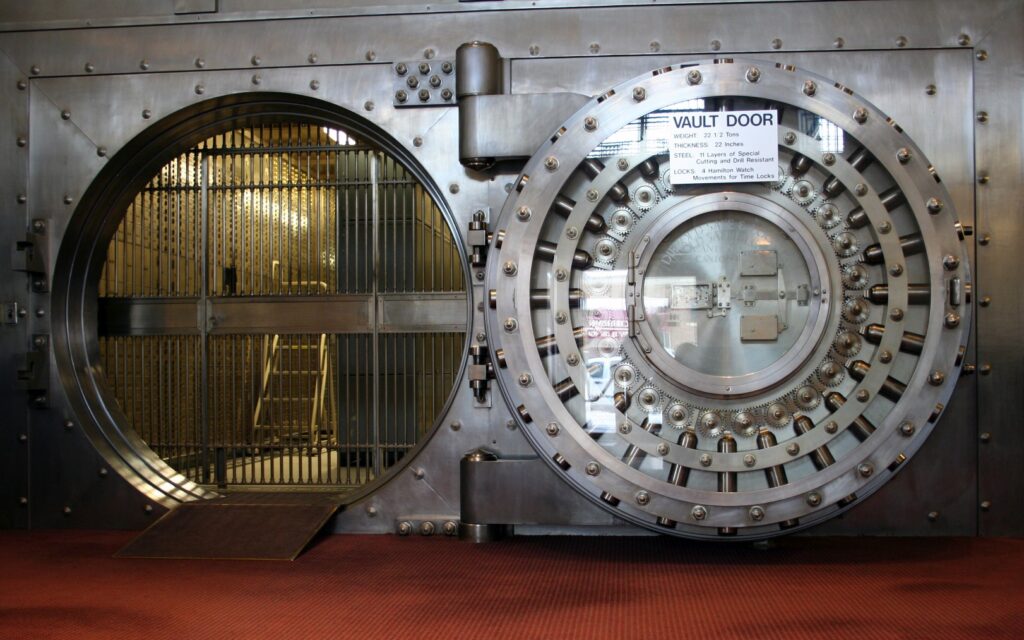
In the era of digital transformation, where fintech apps, neobanks, and various industries are rapidly evolving, most players in the bullion market have embraced digitalization through the establishment of a single webshop and related services. However, new firms entering the market offer tokenized gold but lack crucial elements such as regional branding, organizational responsibility, physical stock management, and auditable transparency. In essence, these players lack trust, infrastructure, and high-quality services. It is evident that gold dealers must keep up with market development and modernization to meet the growing customer demand.
Recognizing the challenges and complexities associated with digital transformation and replatforming, gold dealers are exploring alternatives. “To avoid embarking on this challenging and costly journey, we have developed Vaulter,” explained Sophie Mercier, Chief Sales Officer at Vaulter.
Vaulter is a white-label platform designed specifically for retail gold dealers, enabling them to offer a range of online services to their customers. These services include 24/7 buying and selling of precious metals in any size, precious metals accounts, allocated and pool-allocated vaulting at accredited locations, conversion of metal balances into bars and coins, VAT-free silver and platinum, saving programs, real-time lending, market forecasts, and more.
The key advantage of using Vaulter for gold dealers is the opportunity for growth and expansion without the need for complex, expensive, and challenging IT development. Moreover, Vaulter operates on a Software-as-a-Service (SaaS) model with unparalleled subscription pricing, eliminating the requirement for long-term commitments and significant investments to introduce online services. The guaranteed profitable pricing model enables even the smallest gold dealer to adopt Vaulter, offering modern services to accelerate their business and keep up with the digital transformation in the bullion market. With a subscription-based pricing model, operational costs will always be lower than trade markups and fees.
Trust is a fundamental aspect of the bullion market, and Vaulter ensures transparency and security. Vaulted bars, which represent precious metals balances, are easily identifiable through serial numbers and manufacturers. These bars are allocated to individual or group investors, allowing customers to track their investments in real-time, including the percentage ownership, storage location, and manufacturer. If a dealer has multiple vaulting locations for a particular metal, customers have the option to choose their preferred location for a nominal fee. This service empowers customers to manage their geopolitical risks and preferences. Allocated metal is held as the customer’s explicit physical property, separate from the company’s balance sheets, ensuring it cannot be accessed by liquidators in case of company failure. This level of protection instills trust among customers.
During a purchase or sale, the customer’s overall balance and rights are instantly adjusted by the Hedge Manager to mitigate rate risks. Any mismatches in bullion coverage are hedged on the foreign exchange (FX) market. Unlike stock exchanges, where orders are directly linked to specific positions, the execution of a position in Vaulter relies on balancing the claims, vaulted bars, and current net open position. The Hedge Manager takes independent action as necessary, ensuring that customers’ right claims and metal coverage are continuously aligned in terms of net value.
Temporary unallocation of a small portion of customers’ holdings may occur during hedging. However, by monitoring incoming bank transfers, the operator can anticipate metal purchases and buy bullions in advance. These purchases are offset on the FX platform to eliminate rate risks associated with the surplus of precious metals.
The Hedge Manager handles all aspects of metal trading, and Vaulter can also operate currency accounts, enabling customers to transact using their domestic or preferred currency. Foreign currency hedging follows a similar process as metals, but instead of bullions, it involves bank accounts with probable FX positions as underlying assets. This approach ensures precise settlement, as the value of every precious metals transaction is automatically tracked in the foreign exchange market. The accounting, performance measures, and other metrics expressed in the chosen settlement currency are typically determined by the location of the dealer’s headquarters. The Hedge Manager closes FX positions when treasury transactions are successfully executed in the dealer’s bank accounts, indicating that maintaining foreign currency positions is no longer necessary as the deliverable currency balance becomes available. This process resembles bullion stock management, where a wholesaler purchase closes an FX metal position.
Mercier highlighted that purchasing, selling, and vaulting gold and other metals is just the initial step towards digital transformation. Once a dealer reaches a customer base of at least 5,000, it becomes worthwhile to consider introducing a mobile app. An offline dealer that integrates online purchasing, vaulting, and home delivery services while offering a smartphone app would provide a complete and unmatched service on a global scale, according to Mercier.
